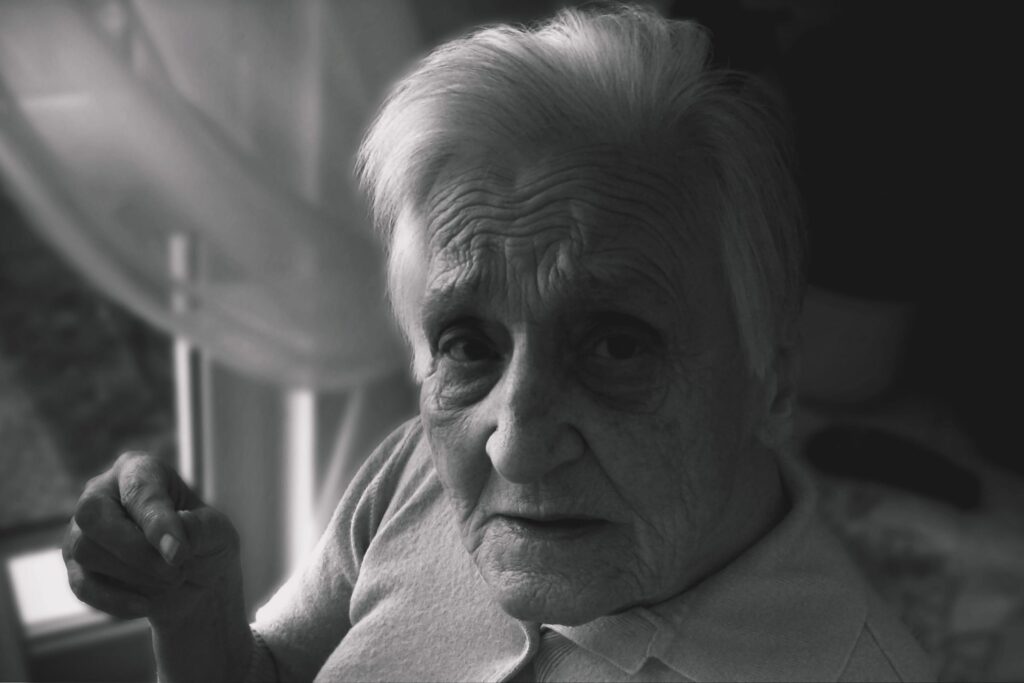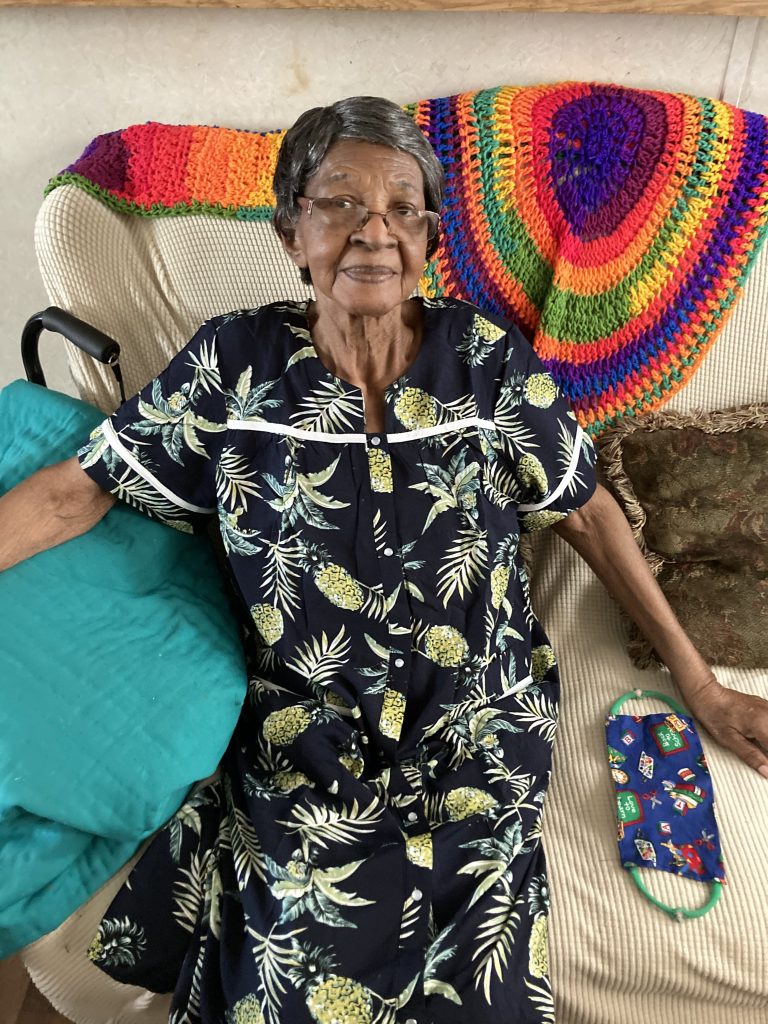
Up to 70% of us will experience a psychologically traumatic event in our lives. Traumatic events are those that threaten our safety and overwhelm our ability to understand and make sense of an event, causing distress and psychological damage. They are more than ‘difficult’ life events; common examples might include abuse, natural disasters, accidents, or combat. The extent to which a person will feel distressed by an event will vary, but up to 40% of survivors will develop clinically significant post-traumatic stress disorder. This psychological disorder is characterised by the distressing reliving of the event/s (e.g. with flashbacks and/or nightmares) and avoidance of any thoughts or feelings about the event/s. Prolonged abuse or neglect in childhood can result in “complex” or developmental trauma, that can fundamentally impact lifelong psychological and social wellbeing.
Given how common psychological trauma is, and how pervasive its impact, it is surprising that its role in dementia care has received little attention. My goal with this blog is to convince you of the potential value of trauma-informed dementia care – or, at least get you thinking.
What impact does psychological trauma have in late life?
Experiencing one or more psychologically traumatic events can have a profound effect on social and emotional functioning. Trauma can impair attention and interrupt the integration of information. This means that seemingly normal events, interactions or objects in the environment are perceived as threatening and trigger a distressing “fight-flight-freeze” response. Because of this, survivors often report a persistent sense of impending threat and can have difficulty relating to others.
Importantly, the impact of trauma can snowball over time. People who experience traumatic events, particularly in childhood, can develop ineffective or harmful coping strategies, such as substance use, anger, or ‘zoning out’. They can also develop harmful core beliefs, such as blaming themselves and distrusting others. These strategies and beliefs shape their experiences moving forward. Problems regulating emotions (that is, calming yourself down) and trusting others make it difficult for survivors to maintain relationships with supportive people, and to openly express their needs and preferences.
As such, older trauma survivors are known to report higher rates of mental illness, substance abuse, and suicidality than those not exposed to trauma. Re-emergence of previously dormant symptoms (for example, renewed flashbacks or nightmares) is a commonly reported problem in older adults with a history of post-traumatic stress disorder. Trauma can also cause an overproduction of glucocorticoids, resulting in death of brain cells. This means that trauma survivors can experience accelerated ageing and are at increased risk for dementia.
So, trauma survivors are more likely to arrive at older age in poorer health, with more harmful coping strategies, fewer social supports, and a higher risk for dementia. What does this mean for dementia care?
Psychological trauma and dementia care
Meet Mary
To illustrate the important impacts of trauma in dementia care, I would like to introduce Mary. Mary is a 78-year-old woman with dementia. She is an avid reader and had a successful career as a talented dressmaker before she retired. Mary has recently entered a residential aged care facility as she is unable to care for herself at home. She has a supportive family (including a husband and two children) but they have found it difficult to care for her as her dementia has progressed. She is becoming increasingly angry with and frightened of them. Mary has limited mobility due to arthritis and has always been introverted and shy, so she mostly keeps to herself. In addition, she has some speech impairments related to her dementia.
We’ll come back to Mary in a moment.
Survivors are sensitive to aspects of dementia care that can evoke distressing memories and intensify trauma-related fear, grief, and humiliation. Receiving dementia care services, whether in community or residential settings, introduces a power imbalance that requires the survivor to trust both a providing organisation and the person delivering the care. The survivor is inherently required to accept limitations to their choice and control; retaining choice and control is the most important component of recovery from trauma. Entering residential care also almost always results in a loss of possessions, which sometimes includes a home that the survivor has cultivated as a safe space.
Mary
The care staff at Mary’s care facility notice that she rarely leaves her room and locks her door whenever she can. She seems frightened of most male residents and staff. She is mostly silent, but becomes very distressed whenever staff attempt to shower her or change her clothes. She is not able to communicate the reasons for this. She wakes several times a night. Staff now provide a sedating medication once a day.
Beyond the broader impacts that comes with loss of possessions, choice and control, almost any feature of receiving dementia care may trigger trauma reactions in ways that are difficult for care staff to understand. Obvious examples include, but are not limited to, personal care, food provision, mobility support, unfamiliar support workers, shared living spaces, closed doors, noise, lighting, and medical procedures. The survivor’s response to the perceived threat can appear out of proportion as they may behave aggressively, hoard food or supplies, or react with “explosive” anger or fear. Equally, their response may go entirely unnoticed if they withdraw from others, “zone out” or experience feelings of hopelessness.
Notice that these responses look like what we might call ‘behavioural and psychological symptoms of dementia’. The extent to which psychological trauma contributes to these symptoms is unknown. Certainly, psychological trauma is well recognised as an important contributor to challenging behaviour in acute mental health settings. Dementia can further impair a survivor’s ability to make informed choices about their care, calm themselves down, express their needs, and understand their environment. From this perspective it makes sense that they may respond to their triggers in challenging ways.
Mary
After a serious incident in which Mary is injured trying to avoid personal care, her family members inform the care facility staff that she was sexually abused as a child and they think she is being triggered by personal care.
Trauma-informed dementia care
Trauma-informed care was developed for use in mental health settings, in recognition of the pervasive ways in which trauma impacts a person’s life, beliefs, relationships, and care. Though they are applied differently across different contexts, the key elements of trauma-informed care are widely agreed: (a) an expectation that all members of a care environment (including clinical staff, care staff, catering staff, cleaning staff and so on) have an understanding of the role of trauma in the lives of survivors; (b) routine use of methods to inform the service of a person’s history of trauma, and (c) design and delivery of care based on trauma-related needs.
Trauma-informed care is distinct from trauma-specific services; it does not require every professional to provide treatment for the symptoms of the trauma. Instead, all professionals are expected to incorporate their knowledge of trauma and its impact into their daily practice and to know where to go to access trauma-specific services where these are needed.
What trauma-informed dementia care would look like in practice would vary from setting to setting, but might include:
- Staff-wide education about the impact of psychological trauma and basic skills in reducing distress
- Routine screening for trauma-related needs
- Clear pathways to refer survivors for mental health support
- Flexible care that adapts to trauma-related needs
- Adapting organisational policies and processes to promote flexibility and respect
Importantly, these principles can be applied not only to residential aged care but across any setting in which a person with dementia receives care.
Revisiting Mary
A trauma-informed aged care provider has the skills to approach Mary’s care differently. They may have knowledge of her trauma history via screening at admission to the facility, or their active care plans that are regularly updated to reflect information and triggers noted by care staff. Care arrangements can be updated to be more flexible, including using female care workers only, ensuring that the same care worker provides personal care every day, using a stepped care approach in which trust is built by first assisting with non-traumatising care tasks, finding a trusted family member to assist, and/or maintaining hygiene without showering. They may also be able to provide Mary with psychological or other psychosocial support to manage her traumatic symptoms.
But we still have work to do
Trauma-informed dementia care is not usual practice. Most people providing dementia care have little training in recognising and responding to psychological needs. Here at the Adult Development Lab at Flinders University, we are conducting research to understand what trauma-informed dementia care might look like in practice, how to improve its uptake, and the impact that can have for survivors with dementia. We hope that this work will promote implementation and raise the capacity of the dementia care workforce to provide care that is safe, accessible, and inclusive.

Monica Cations is a provisional psychologist and epidemiologist who has worked in the ageing and dementia field for over a decade. Her research is translational with a focus on psychological wellbeing in aged care environments and young people using aged care. Monica is a Lecturer in Lifespan Development in the College of Education, Psychology and Social Work at Flinders University, supported by a Hospital Research Foundation Early Career Fellowship.




